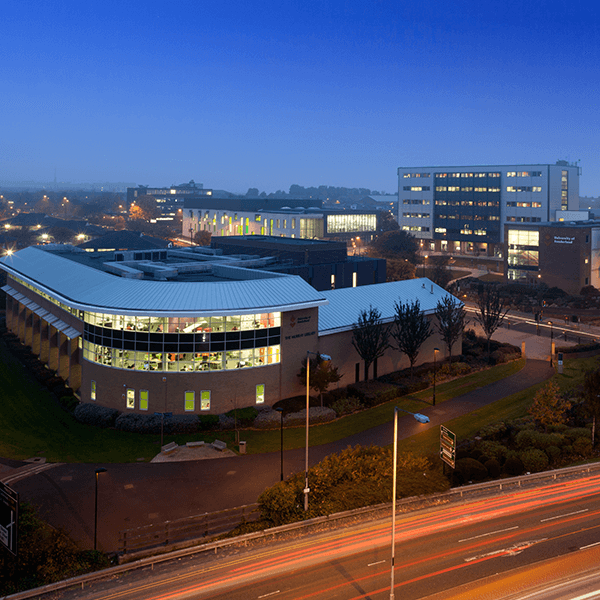If you are applying for this course from within the UK click apply now.
Course starts: 15 September 2025Apply now
Close
If you are applying for this course from within the UK click apply now.
Course starts: 15 September 2025Apply now
This is a four-year version of our BSc (Hons) Physiological Sciences course with an integrated foundation year. Pursue a broad approach to physiological sciences. Specialise in training that is suitable for NHS healthcare science practitioners.
The course focuses on the study of body function, particularly how cell, tissue and organ function is integrated in specific systems such as the nervous, respiratory and cardiovascular systems in health and disease. You will develop specialist knowledge and have the option to personalise your learning to suit your interests with our range of optional modules.
Depending on the availability of suitable placements, and your choice of options, you can work towards one of two possible degree titles: BSc (Hons) Cardiac Physiology or BSc (Hons) Audiology.
Teaching methods include lectures, practical work, seminars, and other forms of group work. Assessment is by continuous assessment of coursework and by examinations, in a ratio of roughly 40:60.
We don’t currently display entry requirements for United States. Please contact the Student Admin team on studentadmin@sunderland.ac.uk or 0191 515 3154.
Entry requirements are provided for guidance only and we may offer you an entrance interview which will help us determine your eligibility for your chosen degree. This enables us to consider making you an offer if you're perhaps a mature student who's been out of education for a period of time, or you've gained significant knowledge and skills through employment rather than traditional education.
Eligible entry qualifications:
If you're unsure of whether you think you might be suitable for the course, please contact us.
**If you've studied for a GCSE which has a numerical grade, you'll need to achieve a grade 4 or above. Equivalent alternative qualifications are also accepted, such as Level 2 Key Skills in Communication and Application of Number.
If English isn't your first language, please see our English language requirements.
The annual fee for this course is £9,535 if you're from the UK/Ireland/EU settled/pre-settled.
Undergraduate fees are set according to rules from Government in line with forecast inflation. The fee for your first year of study for 2025/26 will be £9,535. You will pay tuition fees for every year of study. Fees may increase every year based on the Retail Price Index.
If you're a full-time UK/Irish/EU settled/EU pre-settled student, you may be eligible to receive financial support to cover your fees for the full four years. UK and EU settled students may also be eligible to receive a maintenance loan.
Please note, this course isn't available to international students.
Learn more about settled status, pre-settled status, special discounts, visa requirements, and Common Travel Area (CTA) agreements for the Republic of Ireland applicants in our Help and Advice article.
Take a look at the scholarships and bursaries that may be available to you.
This information was correct at the time of publication.

At entry level, the work involves obtaining diagnostic data from patients and working as part of a multidisciplinary team that also includes doctors, nurses and radiographers.
Employment prospects are very good for Sunderland graduates in subjects allied to medicine.
Potential employers include the NHS, medical research institutions, clinical laboratories, drug companies, molecular biology companies and other organisations where a strong science background is an advantage.
If you choose this degree, you'll be well-prepared to apply for roles as a healthcare science practitioner within the NHS, specialising in audiology. Our course provides significant work-based learning, with unpaid placements amounting to 10 weeks in year 1, 15 weeks in year 2, and 25 weeks in year 3.
If you choose this degree you'll be well-prepared to apply for roles as a healthcare science practitioner within the NHS, specialising in cardiac physiology.
Our course provides significant work-based learning, with unpaid placements amounting to 10 weeks in year 1, 15 weeks in year 2, and 25 weeks in year 3.
As a result of my course, I was able to secure a graduate job in the Freeman Hospital
